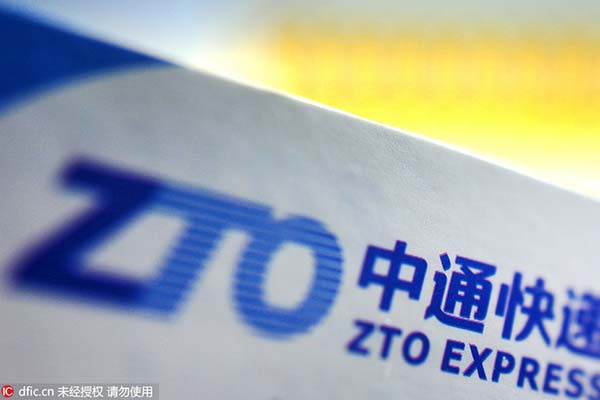ZTO Express plans IPO in NY
By Zhao Yanrong in Beijing and Wang Ying in Shanghai (China Daily) Updated: 2016-07-13 08:09
 |
|
A logo of ZTO Express is pictured in Jinan city, East China's Shandong province, 8 June 2016.[Photo/IC] |
ZTO Express Co, one of Alibaba Group Holding Ltd's logistic partners, is aiming to list as early as September, in what will be the second-biggest initial public offering by a Chinese firm in the United States, according to a report.
The Shanghai-based logistics company has submitted a filing in New York for the IPO, aiming to raise up to $2 billion, International Financing Review reported on Tuesday.
ZTO Express declined to comment on the report when contacted by China Daily.
"In line with our company's policy, we cannot comment on rumors or speculation of ZTO going public," said Vice-President Zhang Jianfeng, adding that the company's current priority was to carry on with its strategic plan to further expand market share and improve service quality.
Citing people close to the deal, IFR reported that ZTO Express had opted for a US flotation for a faster listing than would be possible in China, and this would also make it easier for existing shareholders to book profits from their investments.
The company has not yet decided which New York exchange, Nasdaq or NYSE, it would use for the listing, said IFR. First flagged in March the IPO-if completed-would be the biggest by a Chinese company in the United States since Alibaba raised $25 billion in its IPO in 2014.
Citigroup Inc, Credit Suisse Group AG, Goldman Sachs Group Inc and JPMorgan Chase & Co are reportedly arranging the share sale.
Besides ZTO Express, other Chinese logistics companies such as SF Holdings, YTO Express and STO Express, have sought flotations on the A-share market in China.
Yao Jianfang, an analyst with the China E-Commerce Research Center, said the express delivery industry has been facing a slower growth rate and an intense price war in recent years. The increase of labor and operations costs has led to a continuing decrease of profits.
"In order to break the homogenized competition and expand their business scale, those express companies need large amounts of capital, therefore many of them decided to go public," Yao added.
- China's FDI inflow rises in June
- Li says he's confident of steady growth
- New Pokemon game goes virtually ballistic in China
- Vanke planning big purchase from Blackstone, triggering new speculation
- Wanda's AMC Entertainment acquires leading European cinema operator
- Siemens innovation center is on the way
- Huawei moves to safeguard its patents to crack the US market
- A million ways to beat the summer heat


















